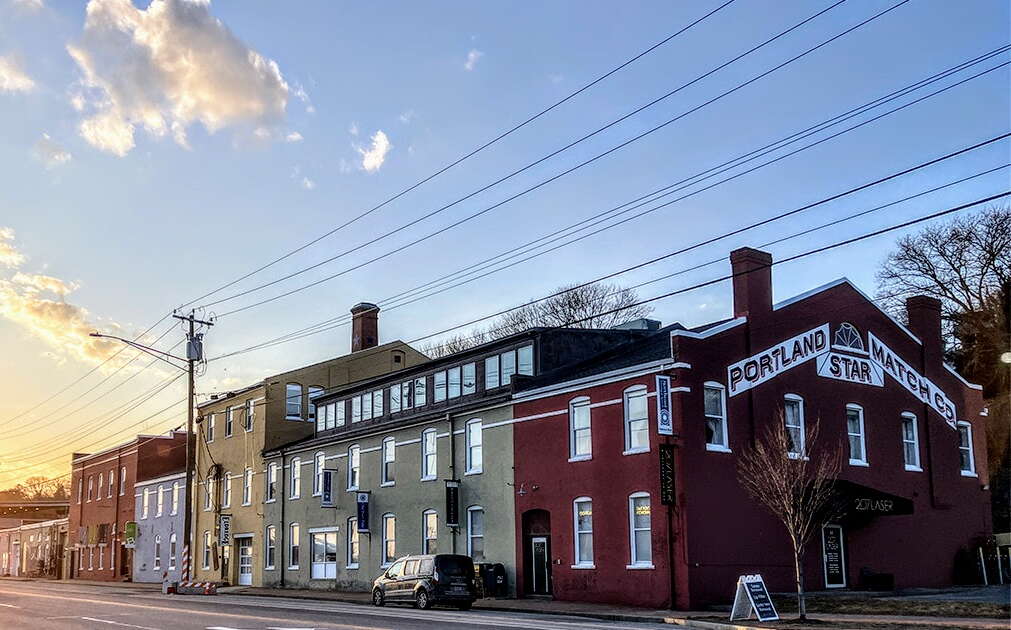
After a series of 'quirky' offices, Friends of Casco Bay finds dedicated space in Portland
Friends of Casco Bay, a Portland nonprofit whose mission is to improve and protect the environmental health of Casco Bay, moved last month from leased space on the Southern Maine Community College campus to the lease of Suite 301 at 75 West Commercial St. in Portland.
Considerations in identifying a new location included capacity to install a larger wet lab, having staffers on the same floor and having flexible parking to accommodate volunteers.
“Once we rebooted from the pandemic, the search took probably a year and a half,” said Will Everitt, the nonprofit’s executive director.
Jed Rathband of Rathband Co. at Keller Williams represented the tenant in the deal.
Friends of Casco Bay was at SMCC for more than 30 years. On March 20, movers carted the organization’s charts, science equipment, computers and more to West Commercial Street.
The new office is open-concept and accommodated the build-out of a larger lab.
The organization’s recent newsletter cited Mike Doan, a Friends of Casco Bay staff scientist, who was a SMCC student and started with the nonprofit as a water quality monitoring volunteer in the 1990s.
“He remembers that our first office on campus was housed in a small barn near the water,” Everitt wrote. “Next, we moved into an experimental structure built by SMCC students. It had an attached greenhouse and a troublesome wooden foundation. Mike recalls it as small, quirky and crowded.”
There were six staffers “stuffed into a hallway-like space,” with one phone and one email address. One staff member kept her pet iguana in the greenhouse.
The organization eventually moved to a larger space in a building next door.
For its latest move, the organization looked at a number of potential locations, both online and in-person.
Now the organization is installed in what was once the Portland Star Match factory, a brick building dating back to 1870 that today houses offices and businesses in the working waterfront area of West Commercial Street.

“All of our staff will be working on the same floor for once,” wrote Everitt. “We still have a view of the bay. The elevator makes the space more accessible for volunteers and staff. Many of us will be able to walk and bike to the new space and the commute is shorter for almost all of our staff.”
New space
The lease includes a modern conference room filled with light, exposed brick and wooden floors.
The newly built lab, nearly twice the size of the old one, is big enough for equipment and the needs of the organization’s science team. Recent scientific work includes a collaboration with the Bigelow Laboratory to assess PFAS levels in Casco Bay by collecting more than 100 water samples at 18 sites across the bay in 2023. Further plans include building on the preliminary dataset to better understand the primary sources of PFAS into Casco Bay’s water and coastal sediment. The information is expected to help state agencies protect local water quality and respond to potential changes in federal regulations.
The organization has grown from one continuous monitoring station in Casco Bay in 2016 to three today. It has about 500 volunteers, many of whom are water reporters who use an app to report changes they are seeing on the bay. Staffing is up from eight full-timers and one seasonal in 2019 to nine full-time and one seasonal today, including the addition of a science and advocacy associate.
The research expansion made crowded conditions in the old lab. At the same time, other staffers didn’t need their own closed-door offices.
“Our staff comes and goes,” said Everitt. “Our Casco Baykeeper boat, in many ways, is our office on the bay; that’s where the work takes place. We needed space for the staff to work, but we didn’t need everyone having an office with a closed door. So we looked for an open-concept space where staff could have work stations.”
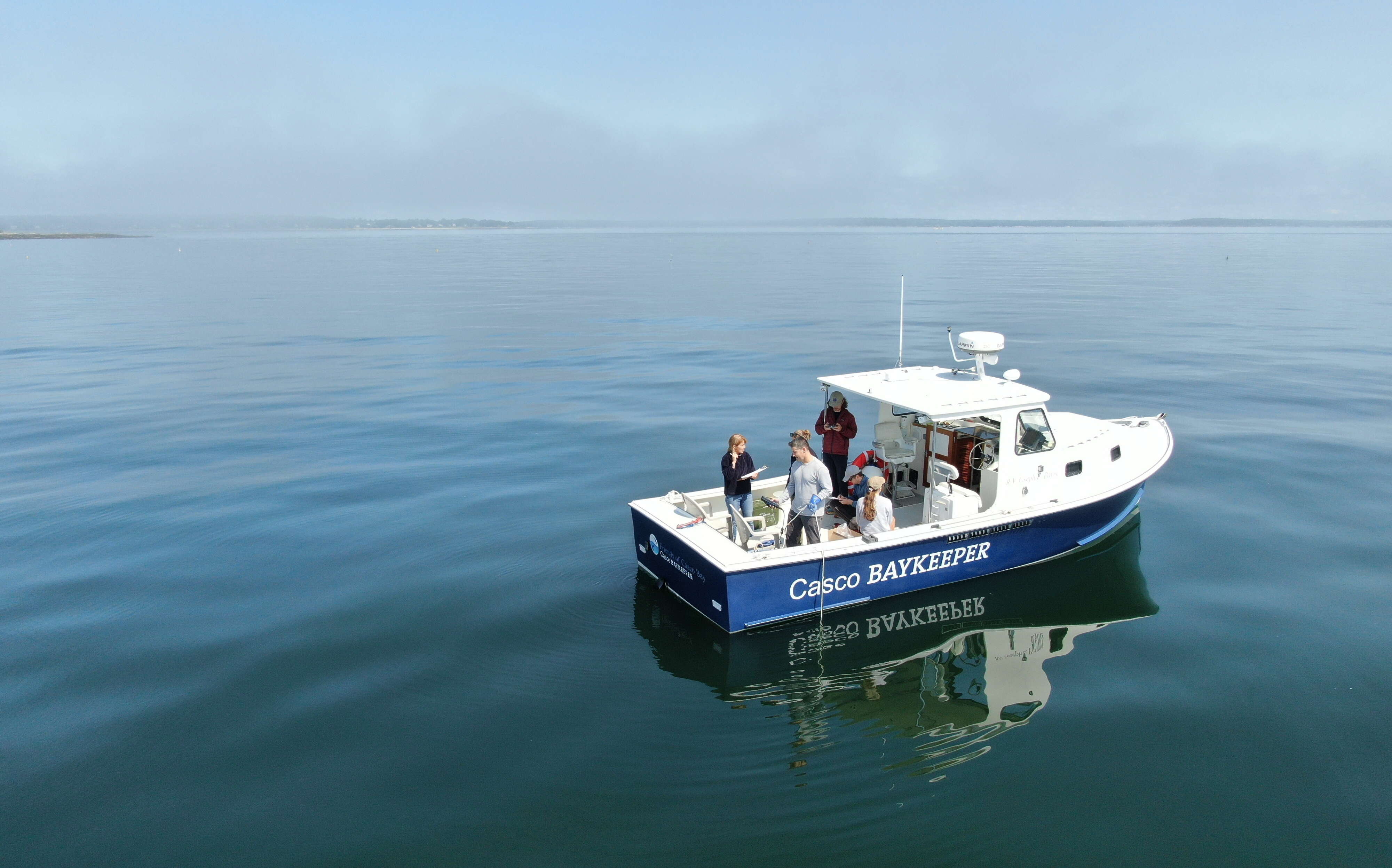
At about 2,500 square feet, the SMCC space was larger but more chopped up than the West Commercial Street location’s 2,000 square feet, which has a more usable layout that accommodates a conference room, a common work area, a few closed-door offices, and the larger lab.
It also provides good accessibility for volunteers and staff, especially those carrying around oceanographic equipment, with an elevator that goes to the third-floor space.
With volunteers coming and going, the group also hoped to find a location with flexible parking.
“I didn’t think we’d find it in Portland,” said Everitt. “But the Star Match building has a lot of parking space, more then enough for our staff and volunteers. Flexible parking on the peninsula is really rare.”
The new location cuts commuting time for nearby staffers, three of whom can now easily walk or bike to work. And it provides greater visibility right on the waterfront.
“At the college, you wouldn’t necessarily know we were there,” he said.
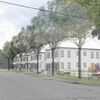




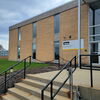
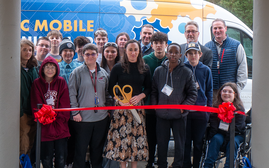
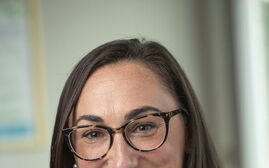
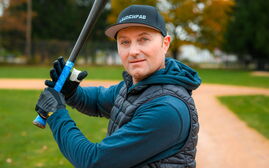
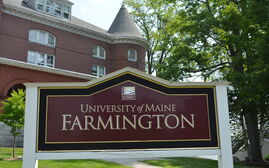




0 Comments